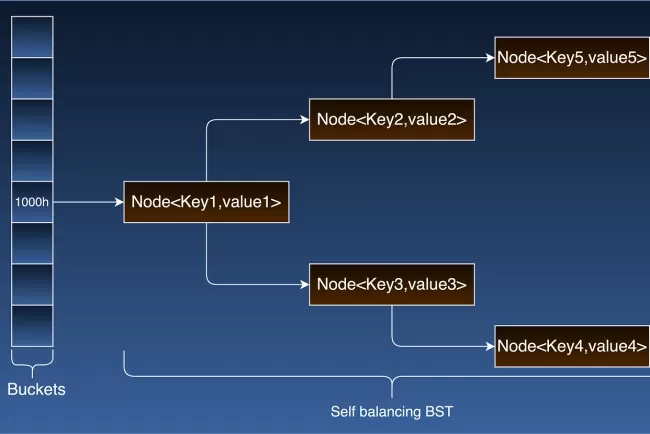The Evolving Landscape of Stack Overflow and Its Impact on Security Research
In the fast-paced world of software development, Stack Overflow has become an indispensable platform for developers. It is a vast reservoir of knowledge, offering solutions to coding problems, security advice, and insights into best practices. But for security researchers

who rely on Stack Overflow data to study code vulnerabilities and developer behavior, there's a catch. Stack Overflow is constantly evolving. Code snippets get updated, new security vulnerabilities are discovered, and programming languages change in ways that could influence research conclusions. The question arises: How do these changes affect the findings from studies that were based on older versions of Stack Overflow?
A recent study delves into this very question, exploring how the evolution of Stack Overflow data impacts research outcomes. By analyzing research studies from 2005 to 2023 and replicating key experiments using newer data, the paper highlights the risks of drawing conclusions from static snapshots of the platform.
The Dynamic Nature of Stack Overflow Data
Unlike a static archive, Stack Overflow is an ever-changing ecosystem. As more developers post solutions to problems, older code snippets are updated, and discussions evolve. These changes are not only a matter of improving code quality or introducing new features, but also correcting security vulnerabilities. In the realm of security, where new vulnerabilities are discovered regularly, outdated code can become a breeding ground for risks.
Security researchers face a critical challenge: the code they analyze today may have been updated multiple times over the years. If their study is based on outdated data, it may not accurately reflect the current state of security in the software development community. The risk is particularly high when reusing code snippets from the past without considering updates or patches, potentially leading to overlooked vulnerabilities.
A Systematic Literature Review: Uncovering the Impact of Code Evolution
To explore the effects of code evolution on research, the authors of the paper conducted a systematic literature review of 43 studies that examined the security properties of Stack Overflow code snippets. The review uncovered several key factors that influence research outcomes, including the programming language, the context of the code, and the methodology used for code classification.
One important finding was the role of programming language evolution. Different languages evolve at different rates. For example, popular languages like Python and JavaScript are frequently updated, and security discussions surrounding them are more prevalent. In contrast, older languages like C++ experience fewer updates and security-related conversations, which means research conclusions based on older code from these languages may be more stable over time.
Another significant takeaway from the literature review was that the methodology used to classify code, whether through static analysis or machine learning models, is highly dependent on the code itself. As snippets evolve, so do the results of these classification techniques, which may skew research findings if they don't account for code revisions.
Code Evolution in Action: Time Series Analysis of Stack Overflow Data
The study also incorporated a time-series analysis to observe how Stack Overflow content evolves over time. This analysis revealed some intriguing trends, particularly the growing proportion of security-related edits and discussions in newer code snippets. For instance, there were notable differences in the frequency of code updates and security discussions between languages like Python and JavaScript, which experienced frequent updates, and others like C++, which had fewer security-related edits.
These trends highlight the importance of recognizing the evolving nature of Stack Overflow data. A research study that focuses solely on a specific programming language or security vulnerability might yield vastly different results depending on when it was conducted. Researchers using outdated datasets may miss critical changes in the data that would otherwise influence their findings.
The Replication Studies: Concrete Evidence of Data Evolution’s Impact
To provide concrete evidence of the effects of data evolution, the study replicated six previous research studies on security vulnerabilities in Stack Overflow code snippets. Using a more recent version of the dataset, the researchers compared their findings with those of the original studies.
The results were striking. In some cases, the distribution of security vulnerabilities changed dramatically. For instance, studies focusing on C/C++ vulnerabilities found that a significant portion of previously vulnerable code had been updated to address security concerns. In contrast, studies on crypto API misuse in Java snippets remained stable, possibly due to the more niche and complex nature of the vulnerabilities.
These findings underscore the importance of considering the temporal aspect of research when using Stack Overflow data. As code evolves, so too should the conclusions drawn from it.
Recommendations for Future Research
The paper offers several key recommendations to help researchers adapt to the evolving nature of Stack Overflow data:
-
Treat Stack Overflow as a Time Series Dataset: Researchers should treat Stack Overflow data as a time series rather than a static snapshot. This allows for a more nuanced understanding of trends and ensures that conclusions reflect the most current data.
-
Account for Code Evolution in Research Methodology: Researchers should explicitly account for code evolution when conducting studies or replicating previous work. The frequency and nature of updates to code snippets can significantly impact the results of security analysis.
-
Incorporate Longitudinal and Trend-Based Analysis: Rather than relying solely on cross-sectional studies, researchers should conduct longitudinal analyses that track the evolution of code over time. This will help to capture the dynamics of developer behavior and security practices.
-
Be Transparent About Dataset Versions: Researchers should clearly specify which version of Stack Overflow data they used and consider re-running studies with newer datasets to assess how their conclusions might change.
Conclusion: Embracing the Evolving Landscape of Stack Overflow
As Stack Overflow continues to grow and change, researchers must be mindful of how the platform’s evolution impacts their studies. By treating Stack Overflow data as a dynamic resource and accounting for the changes in code snippets and security discussions, researchers can ensure that their findings remain relevant and reflective of the current state of software security. This approach will not only enhance the reliability of future research but also provide more accurate insights into the behavior of developers and the security landscape of the coding world.
In an ever-evolving digital world, the ability to adapt to change is paramount, and Stack Overflow’s transformation is a perfect example of this in action. The research community must stay attuned to these shifts to maintain the credibility and relevance of their work.
Do you think that future studies relying on Stack Overflow data should consider applying a versioning system, similar to how software development often tracks different versions of code? How would this improve the reliability of research conclusions?
What's Your Reaction?

















